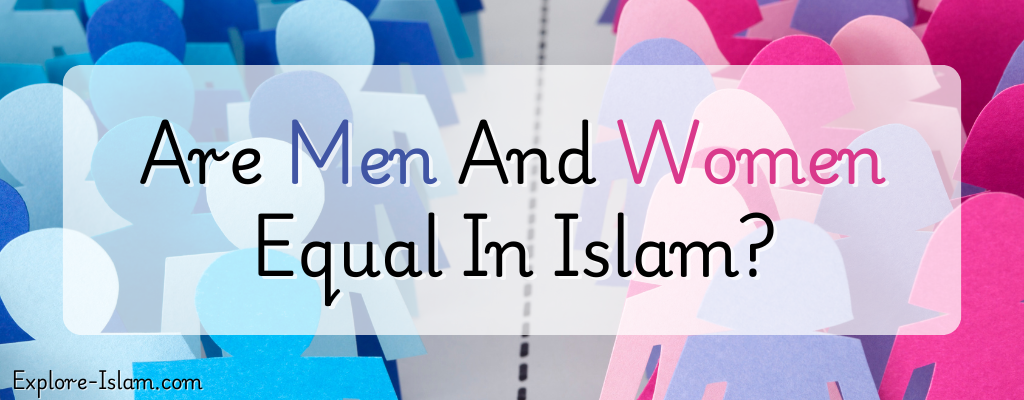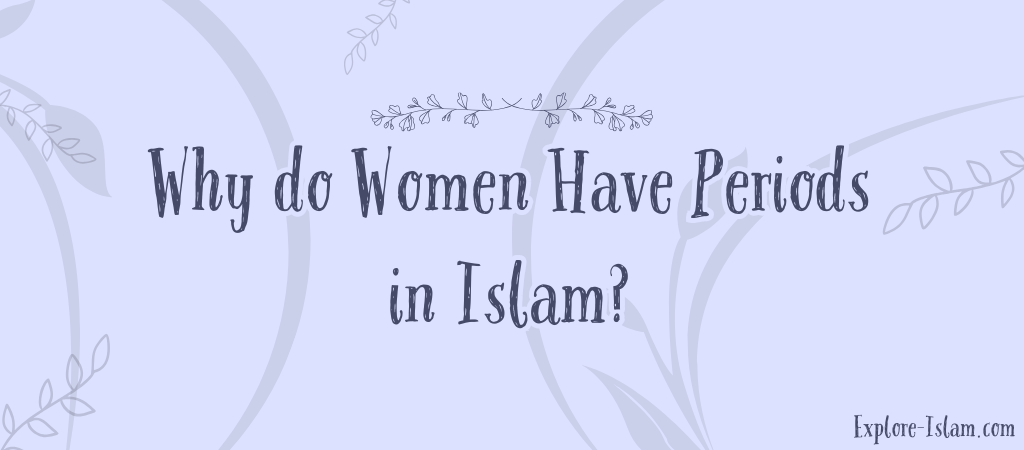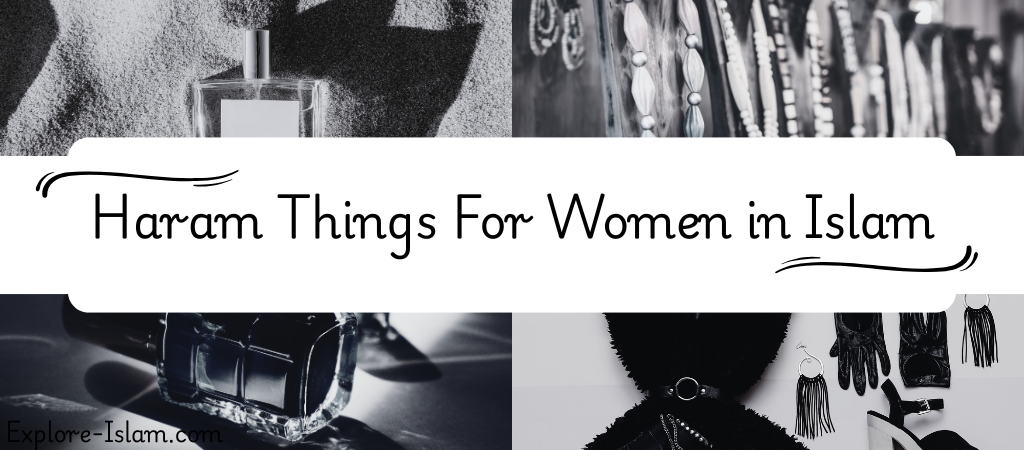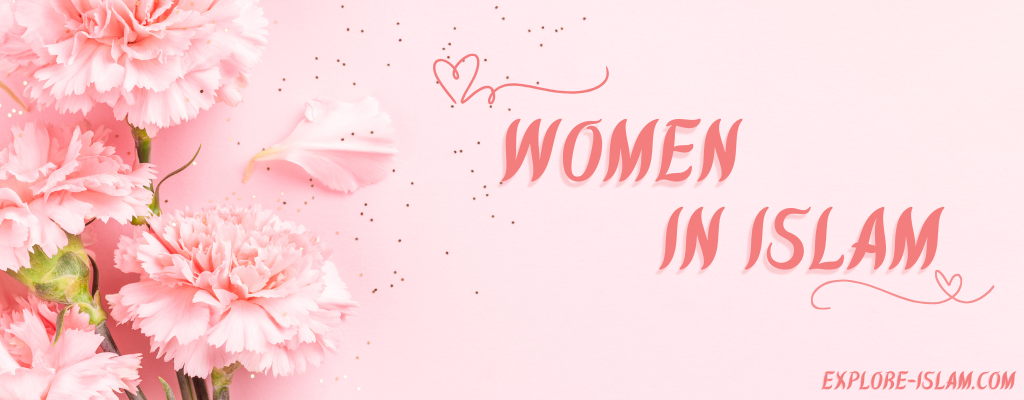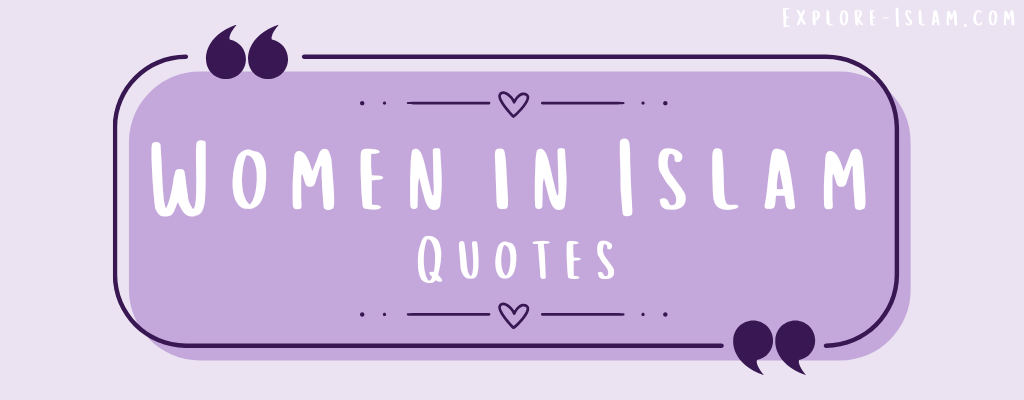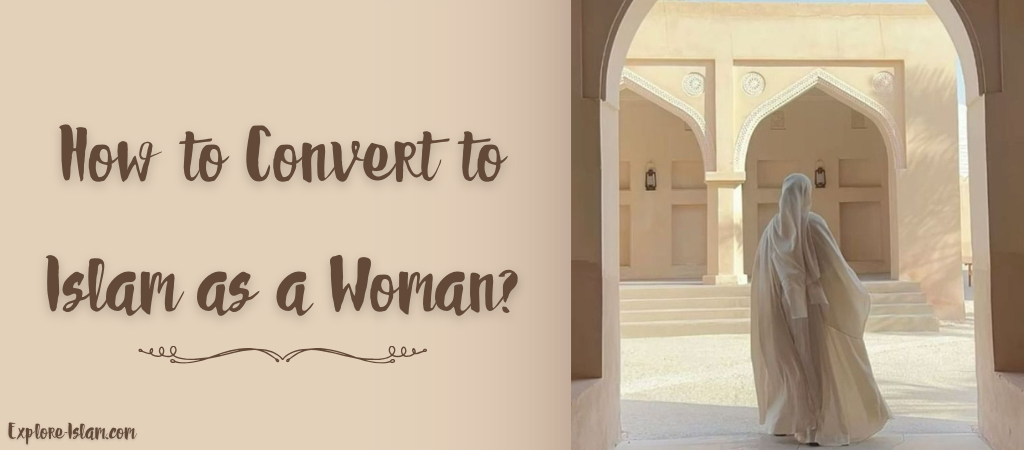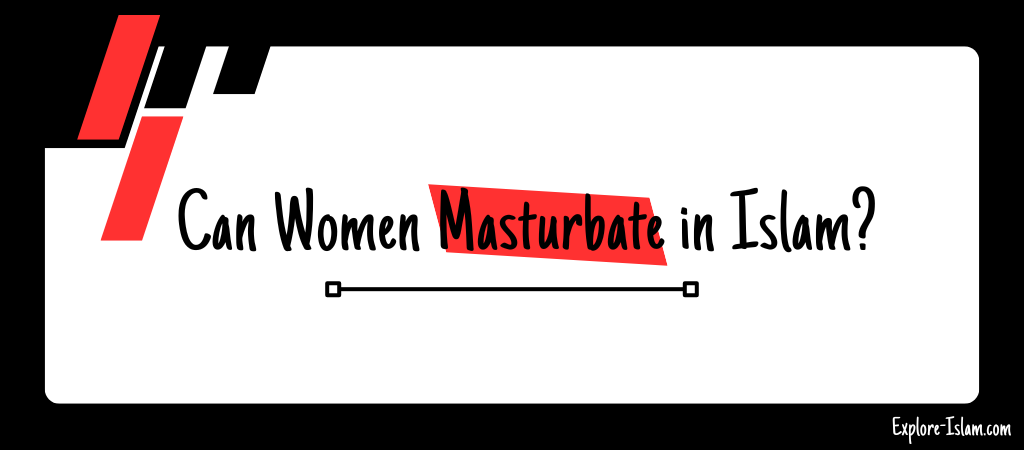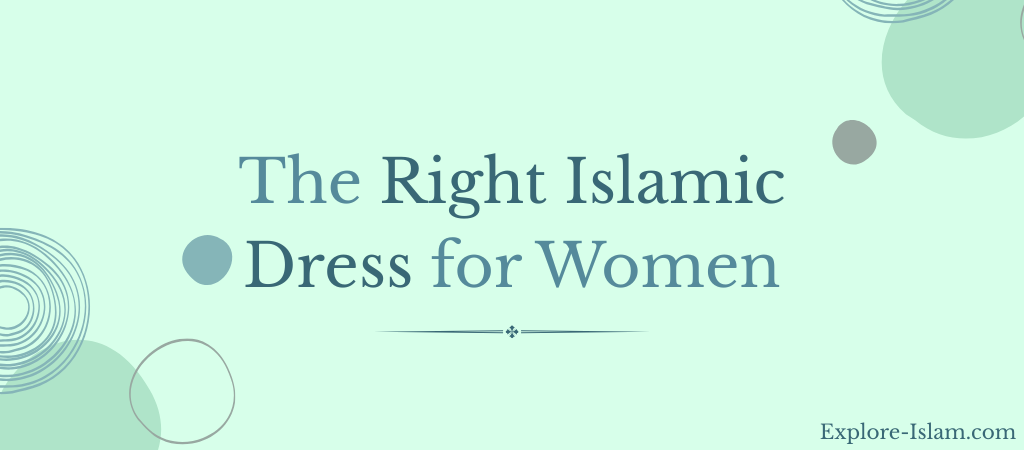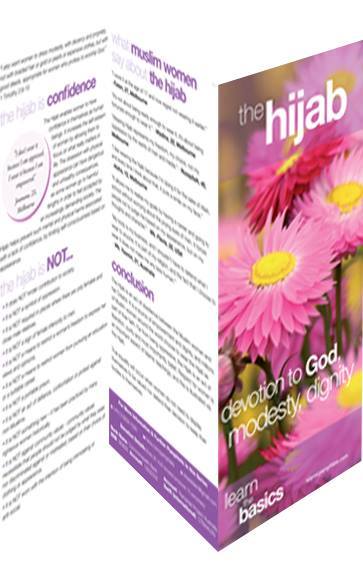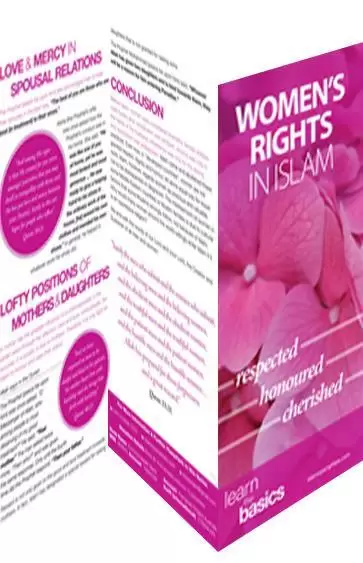The question of equality between men and women is a hot topic globally, and Islam is often put under the microscope in this discussion. People often hold mistaken views or misunderstandings about Islam’s position on women.
So, let’s clarify the core concept right away.
In Islam, the discussion isn’t primarily about sameness, but rather about fairness and complementarity. We’re talking about (justice) versus (absolute, undifferentiating equality). Confusing these two concepts is where many misconceptions arise.
Are Men and Women Equal in Islam?
Yes, men and women are equal in Islam if you use the term ‘equality’ and mean by it ‘justice’. But let’s be clear, that’s twisting the definition of ‘equality’ to fit ‘justice’.
Equality and Justice Are Not Always Two Sides of the Same Coin
To truly understand the Islamic perspective on men and women, we must first distinguish between ‘equality’ and ‘justice’.
In Islamic thought, these are not interchangeable terms.
Equality, in its purest linguistic sense, means sameness or identicality in measure, weight, or capacity. Think of two identical objects, perfectly matched in every dimension.
Justice, however, is about fairness and equity. Justice is about giving each person what they are due and taking from them what is rightfully required of them.
A simple analogy is helpful here: two runners in a race might seem “equal” if they start at the same line. But what if one runner is carrying a heavy weight? Is that just? True fairness, true justice, acknowledges differences and adjusts accordingly. This concept is central to understanding Islam’s view of gender relations.
This distinction is important because some people mistakenly believe that equality and justice are synonymous.
They assume that justice must mean treating everyone identically in every situation.
However, identical treatment in situations where individuals are not identical in their needs or circumstances can actually be unjust.
The core principle in Islam is justice, not necessarily identicality. Islam teaches that men and women are spiritually equal before Allah, both capable of achieving the highest levels of piety and reward.
The Quran states,
“Indeed, the most noble of you in the sight of Allah is the most righteous of you” (al-Hujurat 49:13).
This verse is saying that being righteous is what really matters, not whether you’re a man or a woman. Both men and women are held accountable for their actions and will be judged accordingly.
However, this spiritual equality doesn’t necessarily translate into identical roles and responsibilities in all aspects of life.
Does Islam Advocate Absolute Equality Between Men and Women?
No, and here’s why. Islam recognizes fundamental differences between men and women – not in their inherent worth, but in their biological, psychological, and emotional makeup. The Quran states,
“And the male is not like the female”
This verse isn’t about superiority or inferiority; it’s a statement of inherent difference. To ignore these differences and demand absolute equality in every aspect of life would be unjust.
Imagine forcing a pregnant woman to perform the same physically demanding tasks as a man.
That’s not equality; it’s oppression masquerading as equality.
Allah says,
“Allah does not charge a soul except [with that within] its capacity.”
Islam Ensures Justice for Women through Tailored, Not Identical Treatment
Based on this understanding, we can see that in Islam, justice for women does not necessarily mean making them identical to men in every single aspect.
Why? Because men and women, while equal in human dignity and spiritual worth, are not the same in their physical, emotional, and psychological makeup. To ignore these inherent differences and demand absolute identicality in all roles and responsibilities would, in fact, be a form of injustice.
Islam, in its divine wisdom, recognizes and honors these natural differences. Islam does not seek to erase them or pretend they don’t exist. Instead, Islam builds a framework of rights and responsibilities that is just and equitable, taking into account the distinct natures of both men and women.
This is beautifully articulated in the Quran:
“And do not wish for that by which Allah has made some of you exceed others. For men is a share of what they have earned, and for women is a share of what they have earned. And ask Allah of his bounty. Indeed Allah is ever, of all things, Knowing.”
[An-Nisa 4:32].
This verse, as explained by the renowned scholar Ibn Kathir reminds us that divine wisdom lies in the differential distribution of roles and responsibilities, and that we should seek Allahs’s bounty rather than envying or demanding identical shares in all things.
Where Does Islam Ensure Equality Between Men and Women?
Islam does ensure equality between men and women in several crucial areas:
1. Islam Ensures Equality Between Men and Women in Human Dignity
Both men and women are created from the same essence, as the Quran states:
“And Allah has created you from dust, then from a sperm-drop; then He made you mates.”
(Fatir 35:11).
The measure of a person’s worth isn’t their gender, but their piety and good deeds:
“O mankind, indeed We have created you from male and female and made you peoples and tribes that you may know one another. Indeed, the most noble of you in the sight of Allah is the most righteous of you. Indeed, Allah is Knowing and Aware.”
2. Islam Ensures Equality Between Men and Women in Accountability
Both, men and women, are accountable for their actions.
“Every person, for what he earned, is retained”.
Good deeds, whether by a man or a woman, are rewarded equally:
“And whoever does righteous deeds, whether male or female, while being a believer – those will enter Paradise and will not be wronged, [even as much as] the speck on a date seed.” (An-Nisa: 4:124).
3. Islam Ensures Equality Between Men and Women in Civil Rights
Islam grants women full legal personhood, equal to men. Women can own property, engage in contracts, buy, sell, and make decisions about their finances, both before and after marriage, within the framework of Islamic law.
4. Islam Ensures Equality Between Men and Women in Education and Expressing Opinions
Women have the right to voice their opinions and engage in discussions.
The Quran recounts the story of a woman who debated with the Prophet Muhammad (PBUH):
“Certainly has Allah heard the speech of the one who argues [i.e., pleads] with you, [O Muhammad], concerning her husband and directs her complaint to Allah.”
And let’s not forget the wisdom of Umm Salamah, the Prophet’s wife, whose counsel during the Treaty of Hudaybiyyah was invaluable.
5. Islam Ensures Equality Between Men and Women in The Right of Separation
As Islam granted the man the right to divorce his wife, Islam granted the woman the right to separate. But it differentiates between them in the method and manner of this separation. Islam grants man the right of Talaq (divorce) and the woman the right to Khula’ (a form of divorce initiated by the wife, typically involving returning the dowry).
Differences in Specific Rulings: A Matter of Fairness, Not Discrimination
Because Allah created men and women with distinct natures, some Islamic rulings differ, reflecting these differences and ensuring fairness. These are not about putting one gender above the other. For instance:
1. Different Rulings on Prayer and Fasting During Menstruation
Women are excused from prayer and fasting during menstruation and postpartum bleeding. This is a mercy, acknowledging the physical and emotional changes they experience.
2. Different Rulings on Modesty
The guidelines for covering differ. A woman’s body is considered awrah (to be covered) in the presence of non-mahram men, except for her face and hands. This is for her protection and dignity.
3. Different Rulings on Financial Responsibility
The primary financial responsibility for the family rests on the man. Even if a woman is wealthy, her husband is obligated to provide for her.
4. Different Rulings on Inheritance
Yes, in some cases, a male inherits double the share of a female. This is directly linked to the financial obligations placed on men. It’s a balanced system, not favoritism.
However, it’s important to understand that this is not a blanket rule. In many cases, women receive comparable or even larger shares. The wisdom behind these rulings lies in a complex system designed to ensure the financial security of both men and women within the family structure.
So, Does Islam Hate Women?
Absolutely not. Islam doesn’t hate women. This is a harmful and baseless accusation. Quite the opposite, Islam elevated the status of women at a time when many societies across the globe relegated them to a subservient position.
Islam granted women rights centuries before many other societies did, including the right to own property, engage in business, and receive an education.
The Quran and the teachings of Prophet Muhammad (peace be upon him) are filled with verses and sayings that honor women and emphasize their kind treatment. The Quran instructs men to treat their wives with kindness and respect:
“And live with them in kindness.” (Quran, 4:19)
The Prophet Muhammad (PBUH) said,
“The most complete of the believers in faith, is the one with the best character among them. And the best of you are those who are best to your women.”
Think about the daughter and sister in Islam. The Prophet Muhammad (peace and blessings be upon him) said:
“Whoever has three daughters, or three sisters, or two daughters, or two sisters and he keeps good company with them and fears Allah regarding them, then Paradise is for him”.
And in another Hadith, he illustrated the immense reward for raising daughters by saying:
“Whoever supports two girls until they reach maturity, he and I will come like these on the Day of Resurrection,” and he joined his fingers.
Now consider the mother. There is a famous saying attributed to the Prophet: “Paradise is under the feet of mothers”. While some scholars consider the exact wording of this narration as weak, the meaning is powerfully reinforced by the famous Hadith where a man asked the Prophet: “Who is most deserving of my good companionship?” The Prophet replied:
“Your mother, then your mother, then your mother, then your father.”
Can a religion that commands such profound respect for mothers and girls be accused of hating women? Absolutely not.
Is Islam Bad for Women?
Again, this is a generalization that ignores the diverse experiences of Muslim women across the globe.
Just as there are good and bad examples of any societal system, there are varying interpretations and implementations of Islamic teachings.
Cultural practices in some Muslim-majority countries, often conflated with Islam itself, may indeed be oppressive to women.
However, these practices are often rooted in local customs and traditions, not in the core tenets of Islam. It’s important to distinguish between culture and religion.
Furthermore, Muslim women find empowerment and liberation through their faith. They find strength in the teachings of Islam, which emphasize modesty, dignity, and respect.
Muslim women excel in various fields, from science and medicine to business and politics, while maintaining their Islamic identity.
The narrative of the oppressed Muslim woman is a simplistic and often inaccurate portrayal.
That’s Brings Us to the Conclusion That…
Islam’s vision for gender relations isn’t about mirroring roles but ensuring dignity, protection, and fulfillment for men and women. Modern debates fixate on “equality”, but Islam prioritizes justice, tailoring responsibilities to innate strengths and vulnerabilities.
This isn’t a denigration but a celebration of diversity. By honoring biological and psychological differences, Islam crafts a society where men and women thrive as partners, not competitors.
To judge Islam through a lens of rigid “equality” is to miss its timeless wisdom: true justice lies in balance, not uniformity.
Finally, our blog is a resourceful place if you want to learn more about Islam, get clarity on fatwas and challenge misconceptions.

